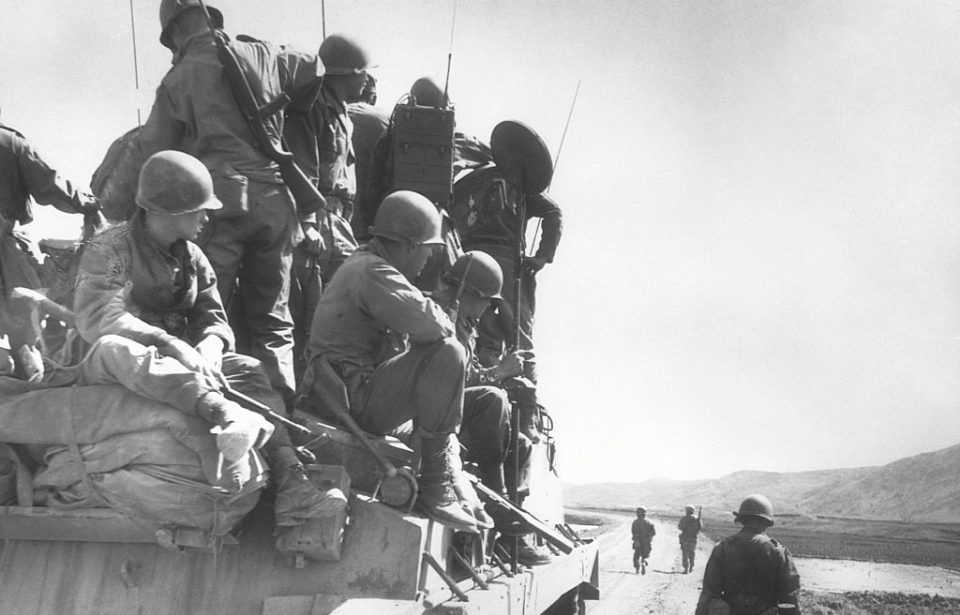The situation for the 8th Ranger Company (Airborne) was looking pretty grim on April 24, 1951. Ordered to move forward to gain intelligence, they soon became surrounded by Chinese soldiers. It didn’t look like they were going to make it out of the Korean War. Stranded, they radioed their situation. No one was willing to help, except for a tanker who went against his captain’s orders and took a platoon of four tanks to rescue them.
Cutoff from the main force
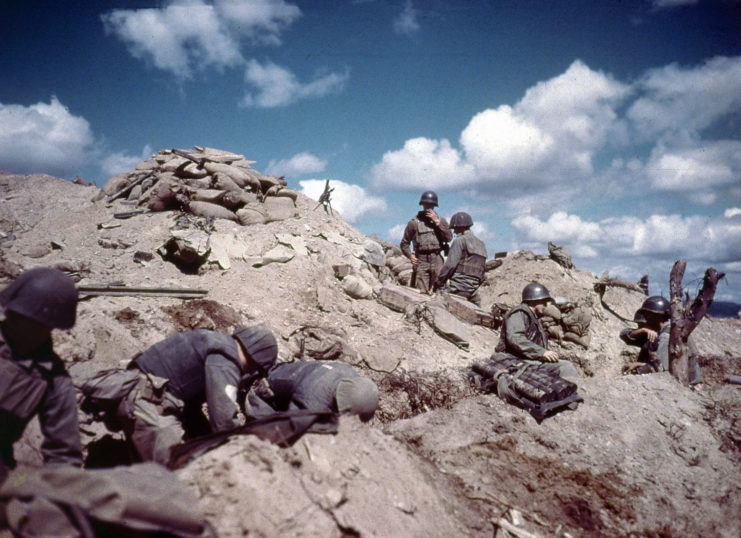
The 8th Ranger Company (Airborne), attached to the 24th Infantry Division, was ordered to advance into enemy territory to gain intelligence on the Chinese, and acquired the summit of a ridge line that offered a clear view of the enemy’s approach. It also gave them a view of the wave of around 300,000 Chinese soldiers closing in on their location.
Capt. James Herbert, the company commander, and his men (87 enlisted, three officers) were able to bypass a good portion of the advancing Chinese units, but, eventually, became cut off from the US lines. Radio communications were made between the Rangers and other American forces, as they described the situation. Ultimately, they were told to “get out as best you can” and left to figure out their escape on their own.
Lt. David Teich disobeyed orders
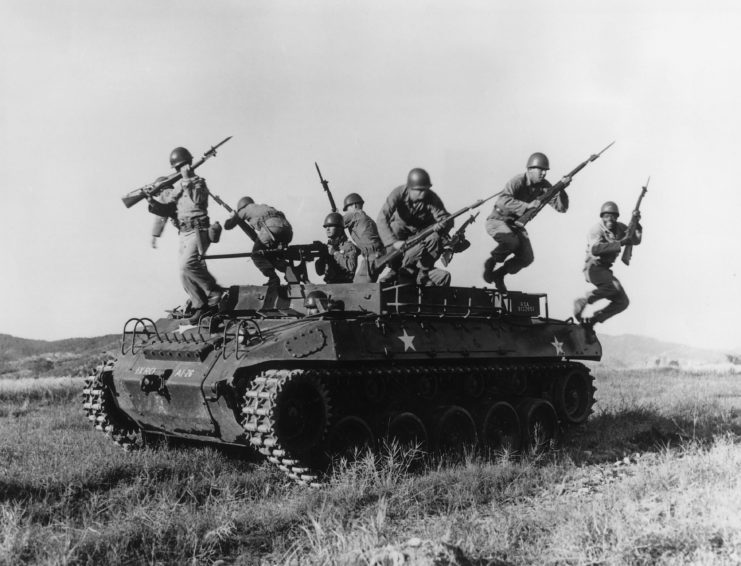
Lt. David Teich of Company C, 6th Tank Battalion heard the radio communications from the Rangers. He knew those men needed some serious help and wanted to do something about it. He approached his captain to see if he and his fellow tankers could attempt a rescue mission, but was told, “We’ve got orders to move out. Screw them. Let them fight their own battles.”
This response wasn’t good enough for Teich, who disobeyed the orders and volunteered to stay behind and lead four tanks to rescue the Rangers who’d been cut off by the Chinese forces. As he and the four tanks made their way to their location, Teich’s captain and other US troops traveled south to safety.
Cpl. Eugene Rivera risks his life in an army crawl
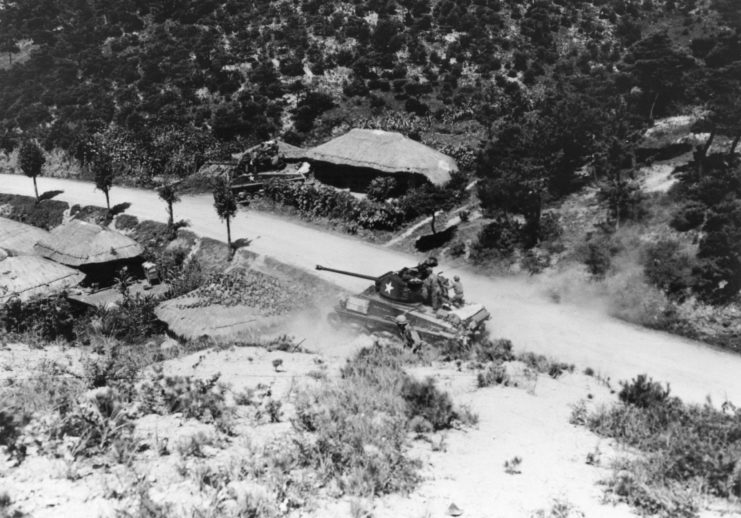
James Herbert called for artillery fire and air strikes against the approaching Chinese. However, he was seriously injured in the crossfire, receiving bullets in the throat, shoulder and arm. His throat was in rough shape and he had to compress the holes on either side of his neck himself, as a tourniquet would have choked him to death. As a result of his injuries, he was no longer able to make the radio transmissions for help.
With Herbert seriously injured, acting communications chief Cpl. Eugene Rivera took matters into his own hands. He calculated the Rangers had all but 20 minutes before the Chinese fully advanced on their position. Without hesitation, he crawled his way to the top of a napalm-fried hill to reach a radio signal. What he eventually saw coming toward them was what he called “the most beautiful sight of my life.”
As the four tanks moved north toward their position, Rivera continued to update and report the movements of the Chinese, reiterating they were cut off and in a bad position, with a mess of wounded soldiers.
Lt. David Teich was their savior
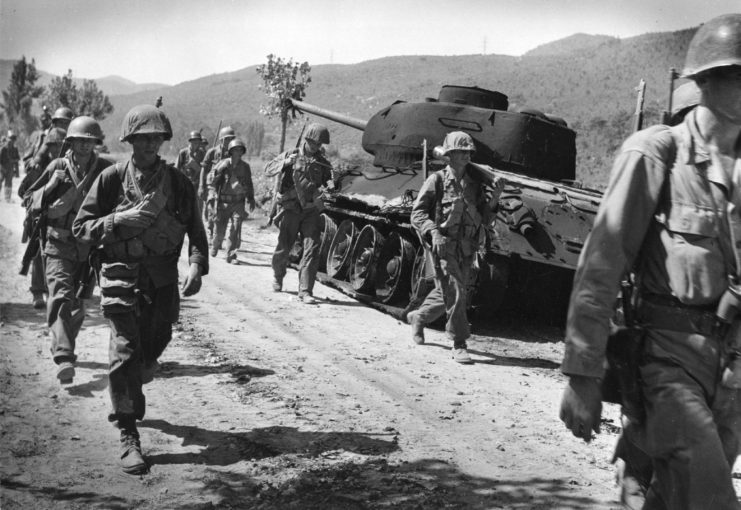
David Teich and his four tanks were able to close in on the Rangers’ position, but the Rangers still had to make it over a mile to the safety of the tank platoon. The able-bodied carried the deceased and the wounded were made to walk. Once they reached the destination, the sick and wounded were loaded onto the vehicles and the remainder made the journey on foot. For Teich, it was his moral obligation to help the Rangers, both as an Army officer and as a human being.
More from us: Chesty Puller: The Most Decorated Marine in US History
Herbert has since reflected on that day, saying, “Though we don’t always say it, Dave Teich saved our lives. If it wasn’t for him, we figure all of the survivors of the battle would have been killed or captured by the Chinese. We look upon Dave as our savior.”
When they finally reached safety, 65 Rangers had survived. To this day, some of them still send letters of thanks to him, despite not knowing each other personally.
